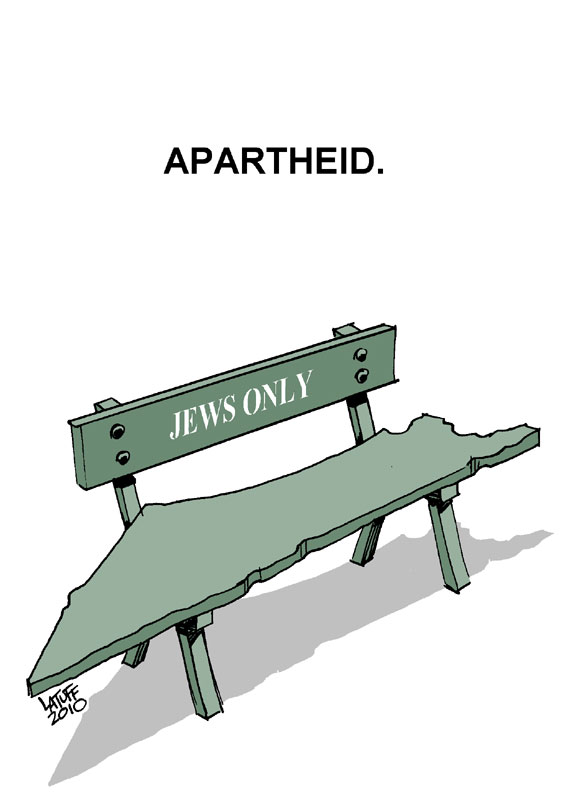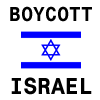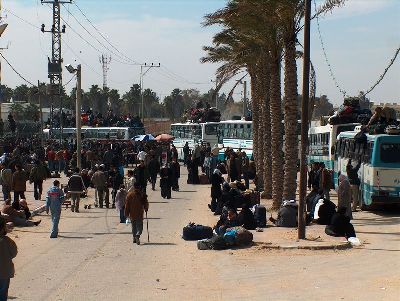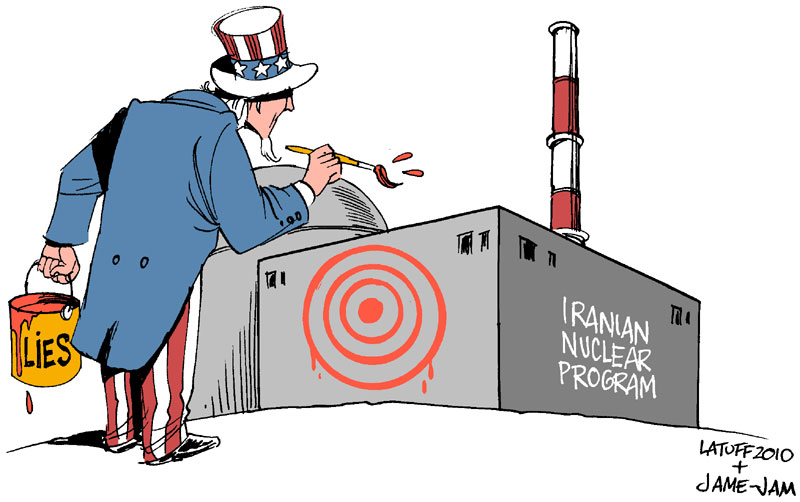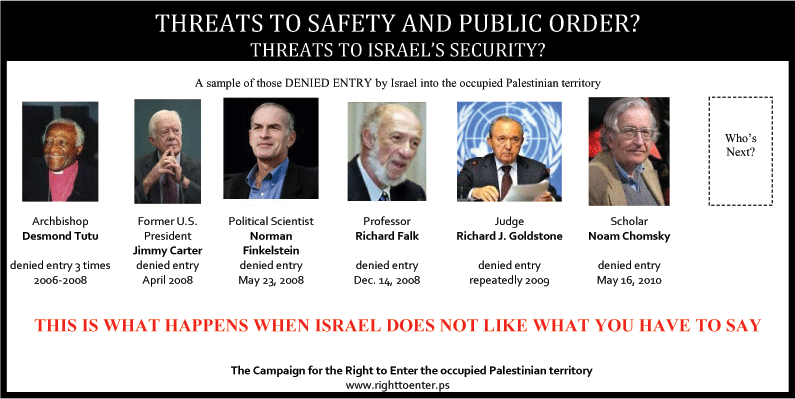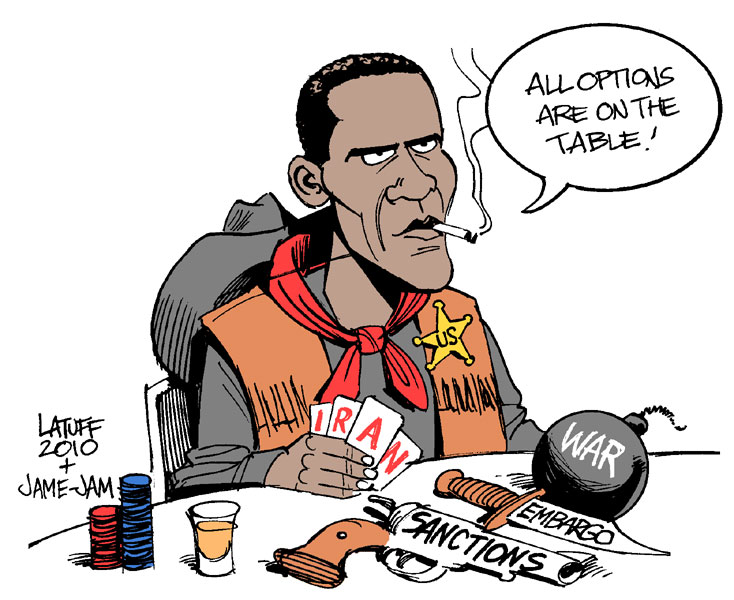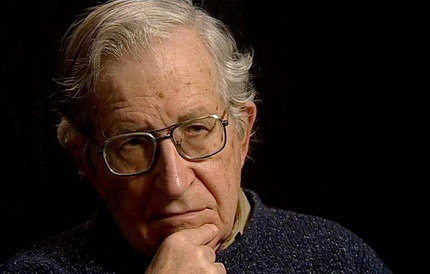BREAKING NEWS! BREAKING NEWS!
EDITOR: Nuclear Apartheid!
Two states were born illegally in 1948. First cam the South African Apartheid state, then cam the Israeli state built of the forced exiling of 80% of the Palestinians from their homes. Ever since their inception, the two states had obvious mutual appreciation, and have exchanged many commodities, especially military hardware and knowhow – both had similar problems, and used similar ‘solutions’. For many years it was known that Israel has supplied SA with nuclear knowledge, and some have argued that the great unexplained explosion in the early 1980s off the coast of Africa was indeed a nuclear test carried out by Israel and South Africa, but until today proof was lacking.
The opening of the archives in SA, despite Israel’s pressure on the SA government, has finally provided this proof. Israel and South Africa, two renegade, pariah regimes based on racism and oppression, have collaborated on nuclear arms which could have brought an untold destruction in Africa and elsewhere. It is clear that the secret services of the leading countries in the west were aware of this illicit and immoral relationship, which places such governments in the dock, together with the two main culprits. And what do those countries do right now? They try to stop Iran, which does not have a bomb, from producing nuclear fuel for peaceful uses, to satisfy the demands made by Israel, a country with over 300 nuclear devices, more than France and the UK put together, more than China! It seems that this time, the issue of Israeli nuclear weapons will not go away!
Some of you may well be wondering – why so little from the Israeli and US press? Well, you may well ask. They mostly pretend this is not happening, avoiding the topic altogether. Also, do not ask me about the BBC – they never heard about it – apparently nobody there reads the Guardian. Do not help them to bury bad news – spread it far and wide!
Israel’s nuclear capability and policy of strategic ambiguity: The guardian
Formally, Israel says it will not be the first country to introduce nuclear weapons in the Middle East

Israel is an undeclared nuclear power: it has a nuclear plant in the southern city of Dimona, in the Negev desert, and is believed to have a formidable nuclear arsenal, but the government has always maintained a policy of “strategic ambiguity”. Israel – like India, Pakistan and North Korea – is not a signatory to the Nuclear Non-Proliferation Treaty.
The main atomic reactor in Dimona, officially for civilian use, was built with French help and became operational in the early 1960s.
Within a few years the CIA concluded Israel was producing nuclear weapons at the plant, but it was not until 1986, when Mordechai Vanunu, a technician at Dimona, spoke to the Sunday Times that the extent of Israel’s nuclear arsenal became clear.
Four years ago Israel’s then prime minister, Ehud Olmert, accidentally acknowledged Israel’s nuclear capability when he told German television: “Iran, openly, explicitly and publicly, threatens to wipe Israel off the map. Can you say that this is the same level, when they are aspiring to have nuclear weapons, as America, France, Israel and Russia?” Formally, Israel says it will not be the first country to introduce nuclear weapons in the Middle East and has led calls for a hardline policy to curb Iran’s nuclear ambitions. The current prime minister, Binyamin Netanyahu, has said a nuclear-armed Iran is the greatest security threat facing his country.
Revealed: how Israel offered to sell South Africa nuclear weapons: The Guardian
Exclusive: Secret apartheid-era papers give first official evidence of Israeli nuclear weapons
Chris McGreal in Washington
Monday 24 May 2010

Secret South African documents reveal that Israel offered to sell nuclear warheads to the apartheid regime, providing the first official documentary evidence of the state’s possession of nuclear weapons.
The “top secret” minutes of meetings between senior officials from the two countries in 1975 show that South Africa’s defence minister, PW Botha, asked for the warheads and Shimon Peres, then Israel’s defence minister and now its president, responded by offering them “in three sizes”. The two men also signed a broad-ranging agreement governing military ties between the two countries that included a clause declaring that “the very existence of this agreement” was to remain secret.
The documents, uncovered by an American academic, Sasha Polakow-Suransky, in research for a book on the close relationship between the two countries, provide evidence that Israel has nuclear weapons despite its policy of “ambiguity” in neither confirming nor denying their existence.
The Israeli authorities tried to stop South Africa’s post-apartheid government declassifying the documents at Polakow-Suransky’s request and the revelations will be an embarrassment, particularly as this week’s nuclear non-proliferation talks in New York focus on the Middle East.
They will also undermine Israel’s attempts to suggest that, if it has nuclear weapons, it is a “responsible” power that would not misuse them, whereas countries such as Iran cannot be trusted.
A spokeswoman for Peres today said the report was baseless and there were “never any negotiations” between the two countries. She did not comment on the authenticity of the documents.
South African documents show that the apartheid-era military wanted the missiles as a deterrent and for potential strikes against neighbouring states.
The documents show both sides met on 31 March 1975. Polakow-Suransky writes in his book published in the US this week, The Unspoken Alliance: Israel’s secret alliance with apartheid South Africa. At the talks Israeli officials “formally offered to sell South Africa some of the nuclear-capable Jericho missiles in its arsenal”.
Among those attending the meeting was the South African military chief of staff, Lieutenant General RF Armstrong. He immediately drew up a memo in which he laid out the benefits of South Africa obtaining the Jericho missiles but only if they were fitted with nuclear weapons.
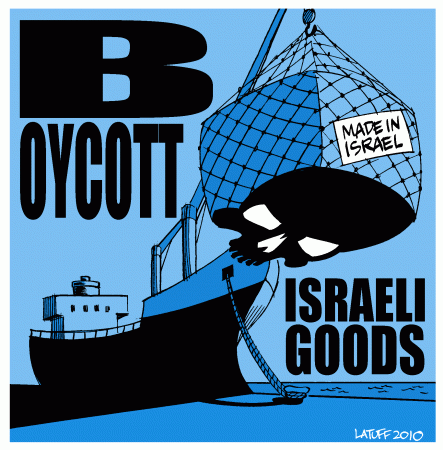 The memo, marked “top secret” and dated the same day as the meeting with the Israelis, has previously been revealed but its context was not fully understood because it was not known to be directly linked to the Israeli offer on the same day and that it was the basis for a direct request to Israel. In it, Armstrong writes: “In considering the merits of a weapon system such as the one being offered, certain assumptions have been made: a) That the missiles will be armed with nuclear warheads manufactured in RSA (Republic of South Africa) or acquired elsewhere.”
The memo, marked “top secret” and dated the same day as the meeting with the Israelis, has previously been revealed but its context was not fully understood because it was not known to be directly linked to the Israeli offer on the same day and that it was the basis for a direct request to Israel. In it, Armstrong writes: “In considering the merits of a weapon system such as the one being offered, certain assumptions have been made: a) That the missiles will be armed with nuclear warheads manufactured in RSA (Republic of South Africa) or acquired elsewhere.”
But South Africa was years from being able to build atomic weapons. A little more than two months later, on 4 June, Peres and Botha met in Zurich. By then the Jericho project had the codename Chalet.
The top secret minutes of the meeting record that: “Minister Botha expressed interest in a limited number of units of Chalet subject to the correct payload being available.” The document then records: “Minister Peres said the correct payload was available in three sizes. Minister Botha expressed his appreciation and said that he would ask for advice.” The “three sizes” are believed to refer to the conventional, chemical and nuclear weapons.
The use of a euphemism, the “correct payload”, reflects Israeli sensitivity over the nuclear issue and would not have been used had it been referring to conventional weapons. It can also only have meant nuclear warheads as Armstrong’s memorandum makes clear South Africa was interested in the Jericho missiles solely as a means of delivering nuclear weapons.
In addition, the only payload the South Africans would have needed to obtain from Israel was nuclear. The South Africans were capable of putting together other warheads.
Botha did not go ahead with the deal in part because of the cost. In addition, any deal would have to have had final approval by Israel’s prime minister and it is uncertain it would have been forthcoming.
South Africa eventually built its own nuclear bombs, albeit possibly with Israeli assistance. But the collaboration on military technology only grew over the following years. South Africa also provided much of the yellowcake uranium that Israel required to develop its weapons.
The documents confirm accounts by a former South African naval commander, Dieter Gerhardt – jailed in 1983 for spying for the Soviet Union. After his release with the collapse of apartheid, Gerhardt said there was an agreement between Israel and South Africa called Chalet which involved an offer by the Jewish state to arm eight Jericho missiles with “special warheads”. Gerhardt said these were atomic bombs. But until now there has been no documentary evidence of the offer.
Some weeks before Peres made his offer of nuclear warheads to Botha, the two defence ministers signed a covert agreement governing the military alliance known as Secment. It was so secret that it included a denial of its own existence: “It is hereby expressly agreed that the very existence of this agreement… shall be secret and shall not be disclosed by either party”.
The agreement also said that neither party could unilaterally renounce it.
The existence of Israel’s nuclear weapons programme was revealed by Mordechai Vanunu to the Sunday Times in 1986. He provided photographs taken inside the Dimona nuclear site and gave detailed descriptions of the processes involved in producing part of the nuclear material but provided no written documentation.
Documents seized by Iranian students from the US embassy in Tehran after the 1979 revolution revealed the Shah expressed an interest to Israel in developing nuclear arms. But the South African documents offer confirmation Israel was in a position to arm Jericho missiles with nuclear warheads.
Israel pressured the present South African government not to declassify documents obtained by Polakow-Suransky. “The Israeli defence ministry tried to block my access to the Secment agreement on the grounds it was sensitive material, especially the signature and the date,” he said. “The South Africans didn’t seem to care; they blacked out a few lines and handed it over to me. The ANC government is not so worried about protecting the dirty laundry of the apartheid regime’s old allies.”
